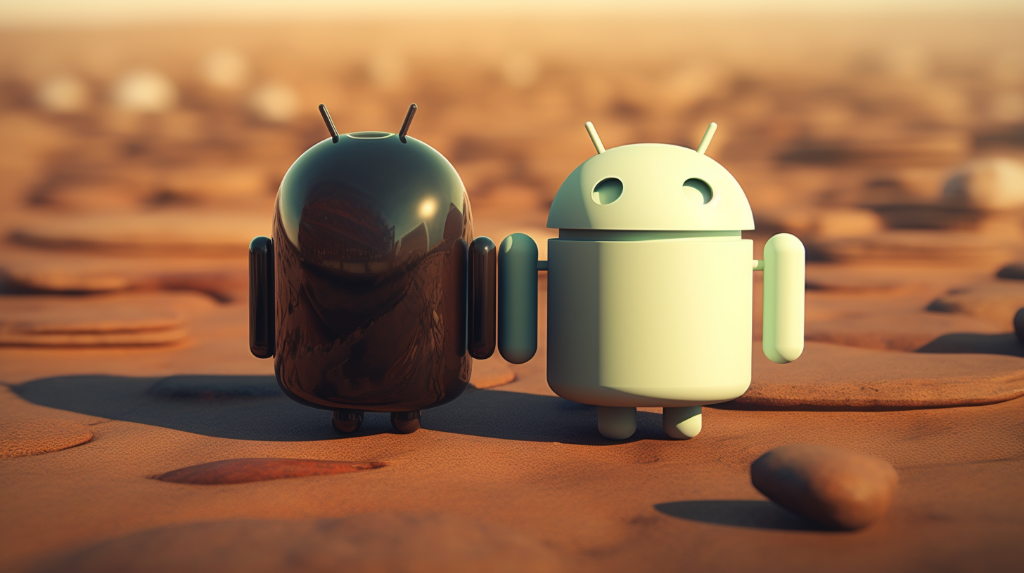Introduction:
Have you ever found yourself torn between choosing an Android or an iOS device? With the constant technological advancements in the smartphone industry, choosing the right operating system seems like a daunting task. Fear not, as we dive into the epic battle of Android vs. iOS, providing you with an in-depth analysis to help you make an informed decision. Let’s explore the pros, cons, and unique features of both platforms, along with some valuable tips and hacks to enhance your mobile experience.
1. User Interface:
When it comes to user interface, Android and iOS have distinct characteristics. Android, developed by Google, offers a highly customizable experience while iOS, designed by Apple, features a sleek and intuitive interface. If you crave personalization and flexibility, Android’s customizable widgets, diverse app launchers, and notification center put you in control. On the other hand, iOS’s seamless user experience, consistency across devices, and iconic simplicity provide a user-friendly environment.
2. App Ecosystem:
The app ecosystem plays a vital role in maximizing the potential of your smartphone. Both Android and iOS boast an extensive range of apps, but there are key differences to consider. With Google Play Store, Android users have access to a wider variety of applications, including unique third-party options. Meanwhile, Apple’s App Store excels in offering curated, high-quality apps that often prioritize design and user experience. Depending on your app preferences, their offerings can greatly influence your decision.
3. Device Compatibility:
Android and iOS cater to different device ecosystems, which can directly impact your choice. Android is renowned for its diverse range of device manufacturers, allowing users to choose from a multitude of smartphones that suit their budget, style, and preferences. On the other hand, iOS is exclusive to Apple devices, ensuring a standardized experience across iPhones, iPads, and iPods. If you desire seamless compatibility and synchronization, iOS may offer a more streamlined experience.
4. Customization and Control:
Android shines in terms of customization options, offering users the freedom to modify their device’s look and feel. From personalized launchers to extensive theme options, Android users can truly make their phone unique. In contrast, iOS focuses on a more controlled environment, ensuring a consistent experience across all devices. If you prefer a streamlined experience with minimal tweaking, iOS offers a more curated approach.
5. Security and Privacy:
Both Android and iOS prioritize security and privacy, but their approaches differ. Android embraces open-source software, allowing for constant innovation and widespread customization. However, this openness may leave some devices more vulnerable to security risks. Conversely, iOS is renowned for its stringent security measures and strict App Store regulations, but customization options may be more limited. Consider your priorities and the level of control you desire when evaluating security measures.
Tips and Hacks:
Now that you’re familiar with the key factors differentiating Android and iOS, let’s explore some tips and hacks to enhance your experience, regardless of which platform you choose:
1. Optimize Battery Life: Reduce background app activity, lower screen brightness, and enable battery-saving modes to prolong battery life on both Android and iOS devices.
2. Master Gestures: Familiarize yourself with gestures like swipe typing, multitasking, and quick access to notifications on both platforms for faster and more efficient navigation.
3. Cloud Backup: Take advantage of cloud services such as Google Drive (Android) and iCloud (iOS) to regularly back up your important data, ensuring seamless data transfer between devices.
4. Customize Notifications: Tailor your notification settings based on your preferences, silencing unnecessary notifications and prioritizing important ones on both Android and iOS.
Conclusion:
In the battle of Android vs. iOS, choosing the right smartphone operating system ultimately depends on your individual needs and preferences. Android offers unparalleled customization, a diverse range of devices, and a wider app selection. In contrast, iOS provides a seamless and user-friendly experience, stringent security measures, and exclusive Apple device compatibility.
Consider the trade-offs between flexibility and simplicity, personalization and standardization, as well as extensive options and curated experiences. Remember to apply the tips and hacks shared to optimize your smartphone experience, regardless of the platform you choose. Happy choosing and enjoy your journey in the world of smartphones!




